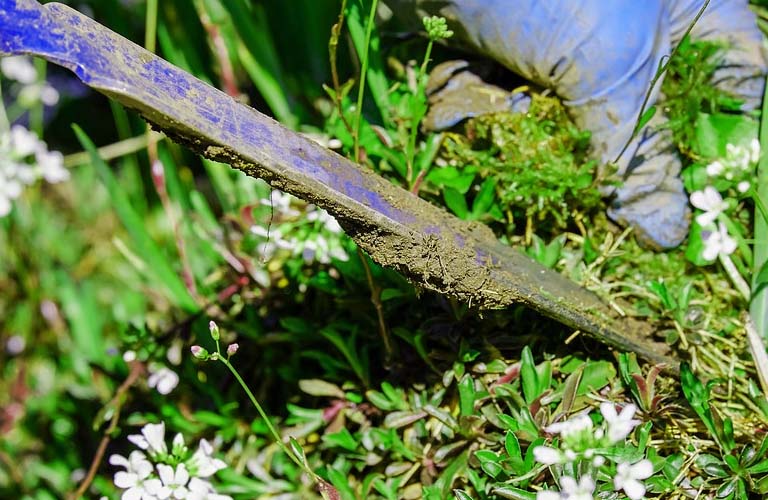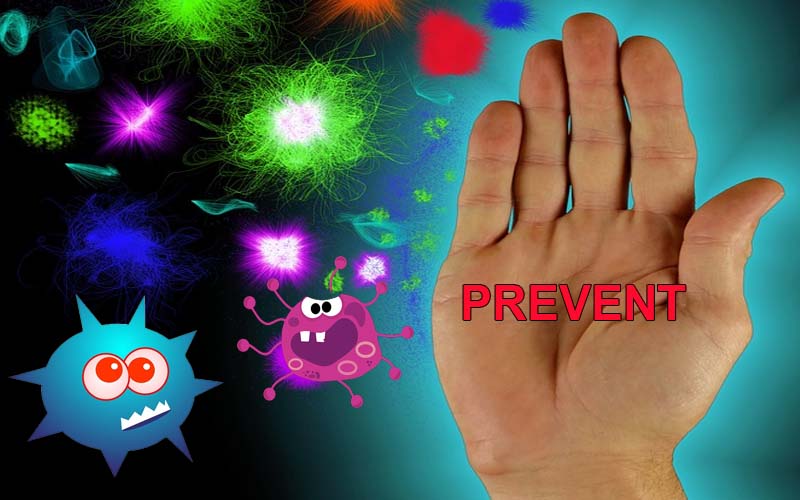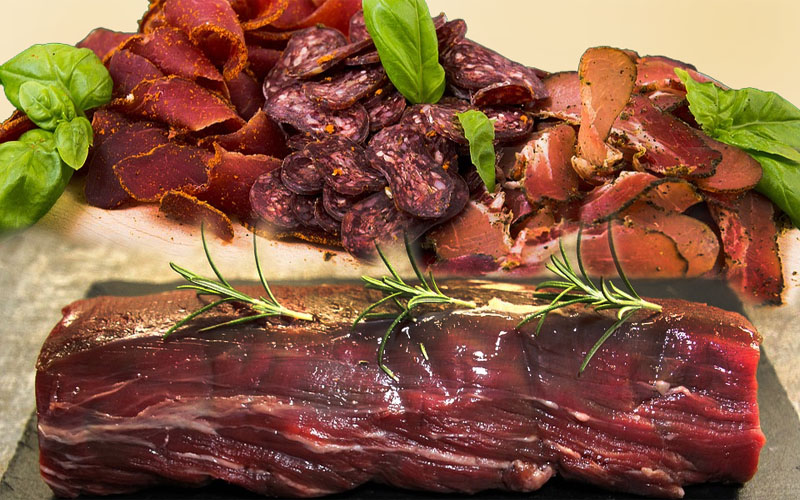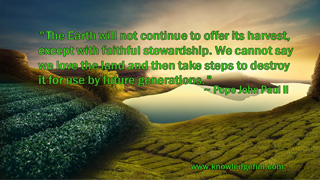Preparing a Landscape Site Without Chemicals - Many urban landscapes are high maintenance, high cost, and high impact spaces that intensively use pesticides, fertilizers, and water. One way that we can reduce chemical use is to prepare landscapes using nonchemical site preparation techniques. This is one step towards creating urban settings that are healthy for the plants and animals (including people) that inhabit them. There are several nonchemical site preparation techniques available that work well, eliminate the use of hazardous pesticides, and enhance soil health. Read more...
Restoring a Lawn Without Chemicals - Have you ever wished that you and your neighbors could take care of your lawns in an ecologically sound way? Your lawn is a good candidate for renovation, rather than complete replacement, if the following conditions are met... Find out more...
Managing Roadside Vegetation Without Herbicides - The most effective vegetation management techniques are focused on weed prevention rather than weed control. Prevention techniques identify the conditions that encourage unwanted roadside plants, and then modify these conditions so that the unwanted plants no longer thrive. Read more...
Cover Crops in Vegetable Production Systems - Current vegetable production systems require an intensive amount of work and inputs, and if not properly managed could have detrimental effects on soil and the environment. Practices such as intensive tillage, increased herbicide use, and reduced organic matter inputs add additional stress to the sustain ability of vegetable production systems. Growers need the tools and best practices to make production systems sustainable without compromising farm productivity and profitability. Cover crops serve as a valuable production tool in preserving environmental sustainability of vegetable cropping systems and render numerous benefits to soil, vegetable crops, and the grower. Find out more...
Poison Oak and Poison Ivy Management - Poison oak and poison ivy can be dangerous plants, but they also have positive characteristics. The first key to avoiding and managing this plant is being able to identify it. It is a good idea to mark the plants or areas containing the plants in the leafy seasons, so you can avoid, manage, or remove them later. Learn more...
Vegetable Management Guide - Find information necessary to make the best possible management choices to assist you in commercial vegetable producing with information on production techniques and pest management. Also learn how to protect the environment and promote social acceptance of agriculture... Find out more...
FIND OUT MORE:

Nonchemical Management of Noxious Weeds - Noxious weed control does not have to mean widespread use of toxic chemicals. Alternative techniques can successfully reduce weed populations and encourage vegetation whose presence is desirable, thus reducing or eliminating the need for repeated treatment. Implementing nonchemical strategies and reducing the herbicide dependence of noxious weedprograms provides long-term and cost-effective weed management. Read more...
Corn Gluten Meal — a Natural Lawn Care Herbicide - Because of the health and environmental hazards associated with use of herbicides, a "natural" weed and feed product is an attractive idea to many people. A product called corn gluten meal fits this description. Learn more...
Managing Weeds in Shrub and Flower Beds - While pulling a few weeds on a pleasant spring afternoon can be a joy, many of us have far more weeds than we have time or patience for weed-ing. But don’t despair! By planning ahead and staying on top of your weed problems you can keep weeds from taking over your shrub and flower beds without using pesticides. Find out more...
Managing Common Rose Disease - If you are planning to plant roses in your yard, you have the opportunity to plant in ways that minimize the problems you will have with rose diseases. Learn how...









